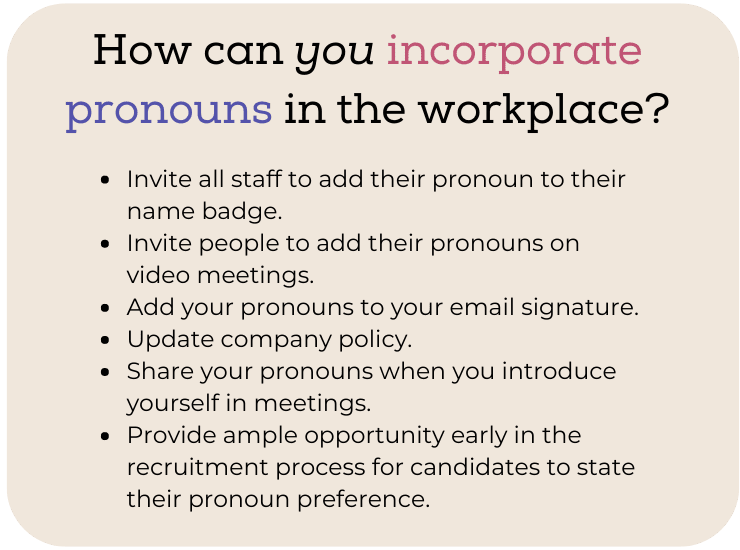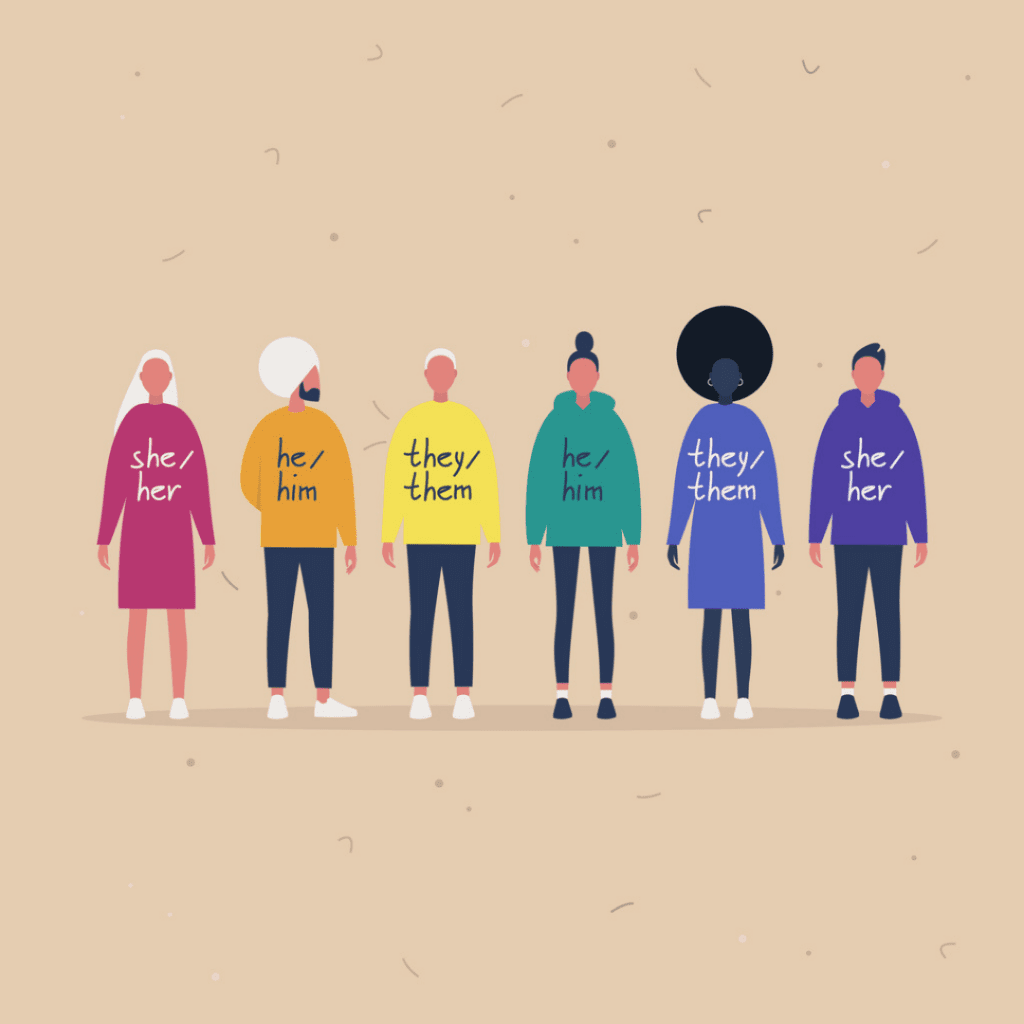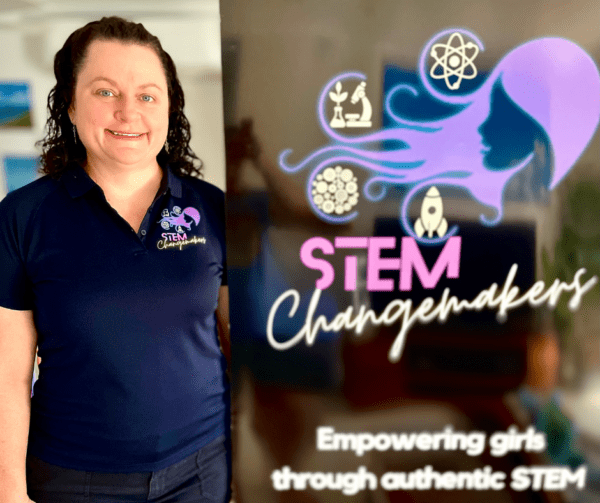The use of pronouns is becoming more widespread, and something that business leaders could consider adopting in the workplace.
When Maverick, a local advocate for the use of gender pronouns, came out as non-binary, meaning they do not identify as explicitly male or female, Maverick requested the neutral they/them pronouns be utilised when referring to them.
“I self-identify as non-binary but leaning quite fluid with my identity,” explains Maverick.
“I’ve always felt as though I didn’t fit in to the traditional gender boxes of male or female. When I came out as non-binary and started using they/them pronouns, it immediately enabled me to express exactly who I am.”
Maverick’s workplace was very supportive of the pronoun change, and whilst it initially took time for co-workers to adjust, Maverick says it has since become second nature for many.

“My co-workers have been wonderful, and I can’t tell you how much that has positively benefited my mental health and ability to give my all to my work,” continues Maverick, who often wears a badge displaying their preferred pronouns at work.
“Imagine if someone was constantly getting your name wrong. They are talking to you, but it’s not really you.
“What many people fail to understand is how harmful misgendering someone can be, particularly in the workplace. We all deserve to be comfortable, especially at work.”
As more companies look for ways to make their workplaces more inclusive, pronouns have become a significant focal point, with it no longer unusual to see them listed beside email signatures, social media platforms and appointment bookings.
“Sharing gender pronouns often leads to more conversations about gender identity and can help promote greater respect and inclusion in Australian workplaces,” says Katie Spearritt, CEO of consulting agency, Diversity Partners.
“For most people, their pronouns may not seem significant. But sharing pronouns can be particularly helpful to people who may identify as trans or are outside of the gender binary, who are often misgendered or questioned. This can lead to exclusion at work.”
In partnership with the Pinnacle Foundation, Diversity Partners have recently launched Project Pronoun, an initiative encouraging businesses to incorporate gender pronouns in the workplace and prevent making assumptions about gender.
“We’re encouraging business leaders to share their gender pronouns in conversations, email signatures, team calls, and social media profiles such as LinkedIn,” continues Katie.
“When more of us start to share pronouns, it normalises it. It means we’re all taking responsibility for more inclusive workplaces.
“It also gives an opportunity for business leaders to show their support for LGBTIQ+ inclusion in Australian workplaces.”
Katie, who spent her earlier years in Far North Queensland but is now based in Melbourne, says they are seeing more Australian businesses actively take steps to make their workplaces more gender inclusive.
“When we launched the project, we were overwhelmed with positive responses and people sharing that they had immediately updated their LinkedIn profiles,” continues Katie.
“While some people may question why, pronouns create an opportunity to start a conversation about the importance of respect for someone’s gender identity.
“There’s greater awareness of the importance of not making assumptions about someone’s gender, and of the importance of avoiding binary-gendered language generally.”

Maverick reiterates this and says the best thing employers can do is to keep an open mind and educate their staff on the importance of considering their use of pronouns.
“It’s important to remember that everybody has pronouns; it isn’t unique to just those in the LGBTIQ+ community,” continues Maverick.
“I think there are a lot of people who simply just don’t understand pronouns, and it just comes back to education, being open-minded and having a discussion.
“At the end of the day, it’s simply businesses giving workers the option to put their pronouns at the end of their emails, on name tags and social media bios, or asking upon hiring, what are your pronouns?
“It’s not about forcing anyone to do anything. It is about opening up the conversation and giving people the option to decide how they want to express themselves in the workplace.
“And who wouldn’t want that for their employees?”








